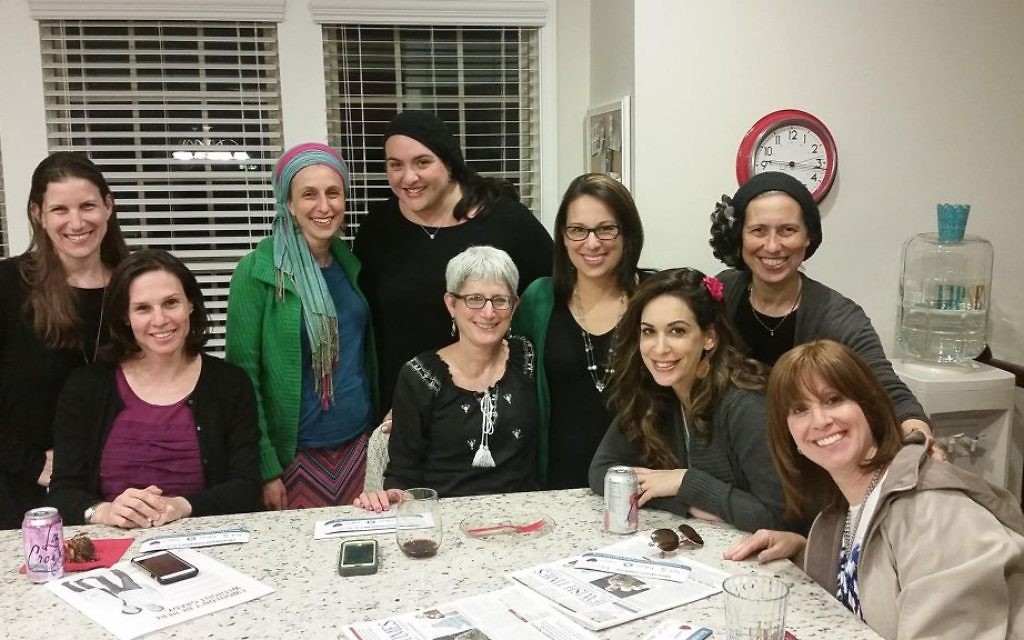Fertility Foundation Expands With Director
Elana Frank is the founder and first employee of Jewish Fertility Foundation.

When Elana Frank launched the Jewish Fertility Foundation in late 2015, the work was based on volunteers and donors who believed in the mission of assisting Jewish families facing medical infertility.
Less than two years later, Frank has made the transition from the foundation’s founder and volunteer president to the growing nonprofit’s executive director and first employee.
Frank has a background in nonprofit management and worked in the nonprofit sector for 18 years. To get JFF up and running, she formed an advisory council that turned into a board of directors.
Get The AJT Newsletter by email and never miss our top stories Free Sign Up
“The big majority of my job is fundraising,” Frank said. “We need to be able to support what we’re doing and give out infertility grants.”
In addition to providing clients with peer support, JFF gives grants to ease the financial strain of in vitro fertilization treatments, starts at $14,000.
The foundation JFF has given grants ranging from $5,000 to $10,000 to four Atlanta-area couples. Two of the four couples got matching grants from fertility centers.
“We should be seeing a baby within a year,” Frank said. “Tell your readers to send good baby vibes.”
The process is stringent and includes a 37-year-old age limit. Couples must also have their embryos genetically tested, but only when its’ recommended by the medical committee consisting of seven of the top fertility doctors in Atlanta. The genetic testing is not covered by JFF grants.
The idea is to ensure the money goes to the most viable candidates, Frank said.
“The medical advisory council decides who gets the grants,” she said. “We also have to make sure they can afford a baby.”
By the time couples connect with the foundation, they may have already spent close to $100,000 on treatments, despite being young and often lacking savings.
The foundation’s volunteers provide financial and emotional support, both of which are important. The isolation and loneliness of fertility treatments can take a toll, said Frank, who had her own fertility struggles before having two sons.
“Right now, we have a woman from North Carolina who comes here to get treatments and stays with a fertility buddy. So many people have experienced the isolation,” Frank said. “I didn’t have to sell the story. It’s amazing the amount of people who want to be involved. These are people who have never given back to the community, but they know what this feels like and want to give back.”
Frank said the relationships formed through the foundation are amazing. The past two years JFF has offered support to more than 150 people and trained more than 150. JFF is expanding its fertility sensitivity training, which includes rabbis, to fertility centers in the Atlanta area. The foundation will teach about fertility sensitivity from a Jewish perspective.
JFF, which last year added the WISH support group and moved its monthly meetings from Temple Sinai to the Metro Atlanta Community Mikvah, is starting a second support group at its Buckhead office.
Frank’s vision is to expand JFF nationally. She said three out of every five calls she receives are not local.
“It’s not fair that I can’t help those people in South Carolina who may not have a large Jewish community, let alone a Jewish fertility foundation,” Frank said. “But right now the board really wants to focus our efforts in Atlanta.”
Elie Engler, the recently appointed board chair, said he decided to get involved with JFF after meeting Frank three years ago when he and his wife, Elisheva, were going through fertility treatments. Engler gives his time and money, mostly meeting with potential donors. His wife is a fertility buddy, the Board’s secretary and the application coordinator.
“We did not have a support system five years ago because JFF wasn’t around,” Engler said. “So we’re grateful to give support.”
Engler worked with Frank and other board members to create the foundation. He said he is excited about Frank becoming the executive director and bringing her energy and expertise.
“We are excited to have her,” he said. “I think she has what it takes to take the organization to the next level within Atlanta and nationally.”





comments